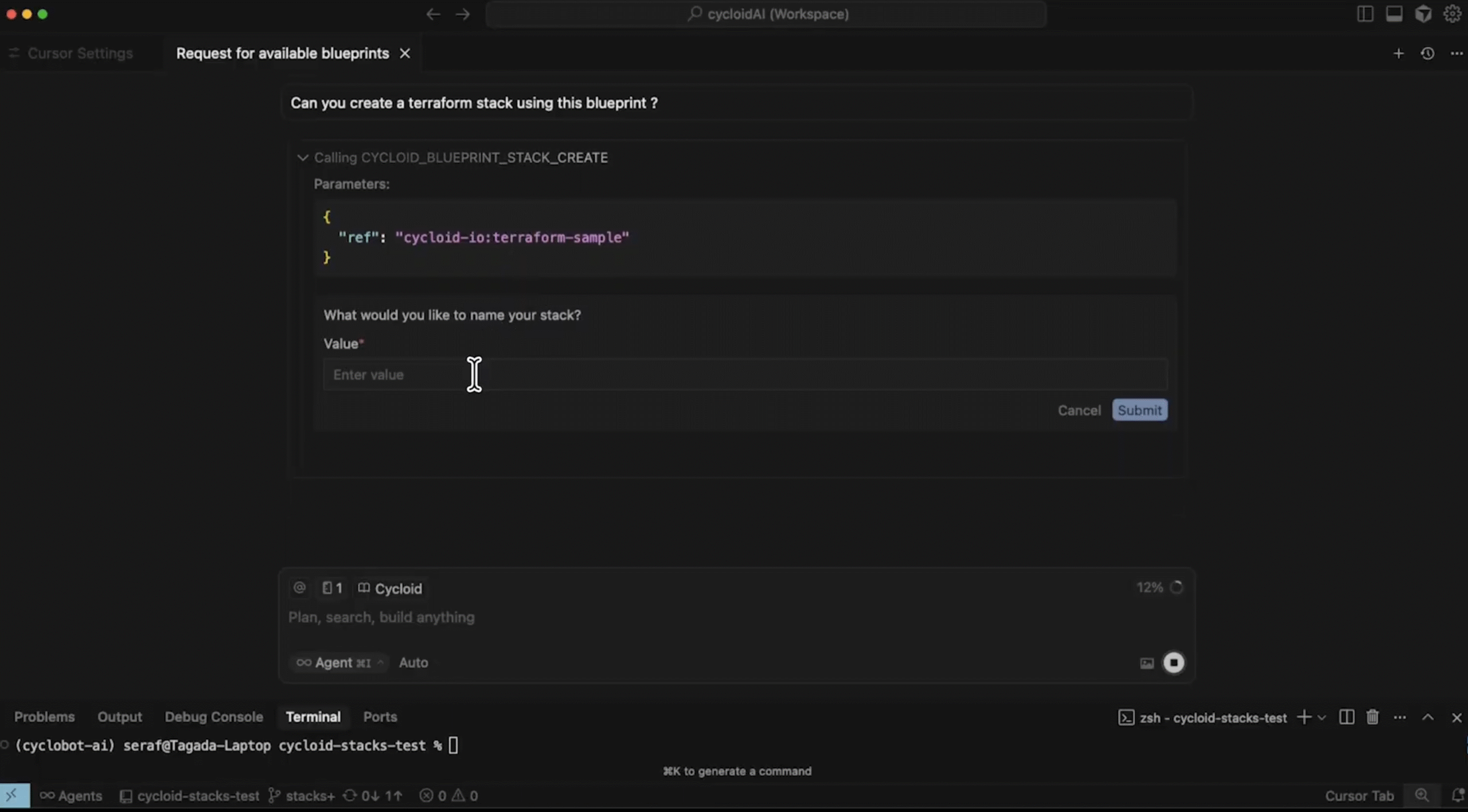Cycloid today revealed it has added a Model Context Protocol (MCP) server that will make its internal developer platform (IDP)accessible to artificial intelligence (AI) agents that are increasingly becoming part of DevOps teams.
Company founder Benjamin Brial said that as AI continues to evolve, it’s becoming apparent that AI agents will need access to many of the same capabilities that human developers take advantage of when building applications at scale.
For example, the MCP server will make it possible for AI agents to create and validate a portal using StackForms files that were generated using Cycloid documentation.
At the same time, human developers, regardless of skill leve,l will be able to use AI tools to both quickly list Cycloid events and identify service catalogs and blueprints.
Originally developed by Anthropic, MCP is emerging as a de facto standard for connecting AI models to external data sources. That approach eliminates the need to rely on a custom set of application programming interfaces (APIs) that a DevOps team would otherwise have to build and maintain.
It’s not likely AI technologies will eliminate the need for application developers any time soon but the way software is built and deployed is clearly about to fundamentally change. The Cycloid platform is evolving to now optimize the developer experience in the age of AI, said Brial.
While IDPs have been around for some time, the rise of platform engineering as a methodology for managing DevOps workflows at scale has spurred adoption. Platform engineering teams are using IDPs to expose a standard set of tools and platforms that application developers can use to self-service their needs.
The overall goal is to both increase efficiency and reduce costs. In fact, a recent survey conducted by The Futurum Group finds platform engineering as a methodology for building and deploying applications at scale is gaining significant traction. More than a quarter of respondents (26%) have mastered platform engineering, compared to 41% who are still working toward applying platform engineering across multiple projects. Another 24% are still working toward operationalizing a set of best practices for platform engineering, while 7% are just getting started.
Each organization will need to determine to what degree deploying an IDP makes sense, but the more DevOps teams there are, the more pressing the issue tends to become. Many DevOps teams have acquired separate tools and platforms that, in addition to increasing overall expense, tend to make collaborating across various teams a challenge. The issue, of course, is convincing often fiercely independent DevOps teams that they have more to gain by embracing platform engineering than they stand to potentially lose.
However, with the rise of AI, many organizations are going to have to revisit how they build and deploy software, which may naturally lead to further centralization to ensure best practices are being followed both by human developers and the AI agents they are employing. Otherwise, the potential for application development chaos is likely to be a lot higher than anyone is likely to have anticipated.

